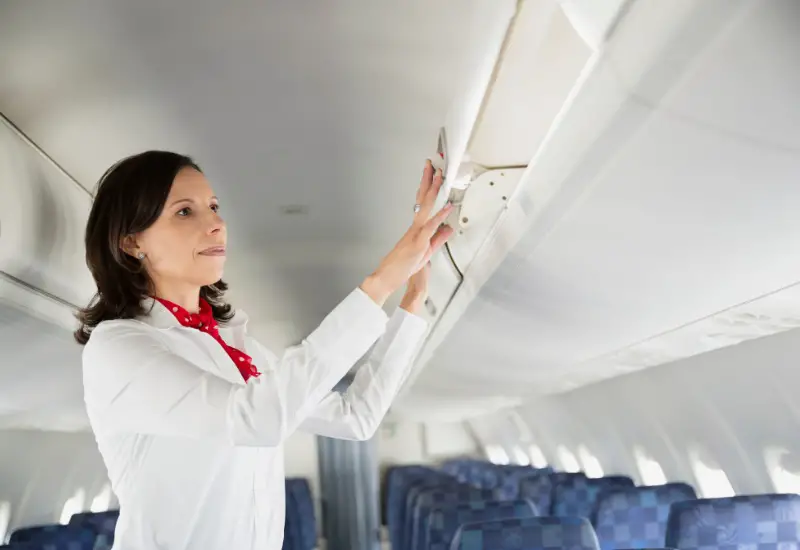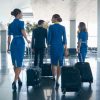It sounds like it should be illegal, but it’s true, flight attendants are often required to spend hours working without receiving their regular hourly pay.
In the US, most flight attendants are only paid while the aircraft door is closed. This means they are not paid for any of the time they are required to be at the airport before, or between flights, they are not paid for boarding or deplaning, and they are not paid for delays if the plane is still at the gate.
Oftentimes this means flight attendants will work a 16-hour shift but only get paid for 6!
You might be wondering, “How do airlines get away with this?” and “Why do flight attendants put up with it?” Well, if you are curious, I have set out to explain it all and clear up some of the confusion.
What are flight attendants paid for?
Flight attendants are paid their full hourly rate for actual “flight hours,” after the boarding door has been closed which includes taxi, take-off, in-flight, and landing. The clock stops again as soon as the door is opened at their destination.
At all other times flight attendants are earning per diem which is roughly $2.15 an hour.
But legally, per diem is not compensation for work. It is a payment intended to equalize the financial burden flight crews face having to feed themselves at over-priced airport restaurants and hotels. It is not even intended to fully cover the cost of meals on the job.
Examples of unpaid labor flight attendants perform daily
Flight attendants are required to do the following things unpaid. Failure to complete these tasks will almost certainly result in termination.
- Arrive at least an hour prior to their first flight and proceed to the crew operations center to pick up paperwork essential for the flight they will be operating
- Board the aircraft and check all safety equipment to ensure that it is present and working
- Set up the beverage carts, accept catering, and complete a mandatory safety briefing with the pilots
- Assist passengers during boarding, serve pre-flight beverages, and pay attention to possible security threats
- If there is a delay with passengers on board flight attendants are expected to tend to passengers and even do a full emergency cabin service, depending on the length of the delay
- Assist passengers during deplaning and wait with them onboard if the required accommodations have not arrived
- Fill out any paperwork regarding in-flight medical emergencies, passenger disagreements, or security issues
Some, but not all, airlines also require their flight attendants to clean the plane between flights.
Why is this legal and why do flight attendants put up with it?
In the US the Railway Act, instituted in 1926, was intended to settle disputes between railroad companies and the unions representing their workers. The act made it impossible for unions to strike based on disagreements with the contractually established “status quos” in order to keep vital transportation services running.
At the time railways were not in the habit of paying their employees for stationary time, (while the train was in a station for example), and the Railway Act made it impossible for them to dispute this.
The act and pay structure were later applied to airlines, meaning flight attendants would not be paid for stationary time either. So unpaid labor has been a part of the status quo from the very beginning, giving flight attendants’ unions no legal recourse to dispute this.
Things might be changing (we hope)
In the last few years flight attendants have been launching a subtle PR campaign to let the public know they are being asked to do unpaid labor.
“Pay me for boarding” luggage tags have become a popular accessory designed to catch the attention of passengers who can press airlines for the fair payment of flight attendants and there has been some success.
A few celebrities have taken up the cause on twitter, shaming airlines for these outdated labor practices. And Delta airlines recently announced it would begin paying its flight attendants for boarding.
While Delta flight attendants will only be receiving 50% of their “in-flight” hourly wage. It is still something.
Final thoughts
It is, quite frankly, unfair to expect flight attendants to do unpaid labor.
We hope that more airlines will join Delta and provide fair compensation for boarding and delays.
Until then, be extra nice to your flight attendants during boarding and delays, they literally aren’t getting paid enough to put up with peoples shenanigans.




